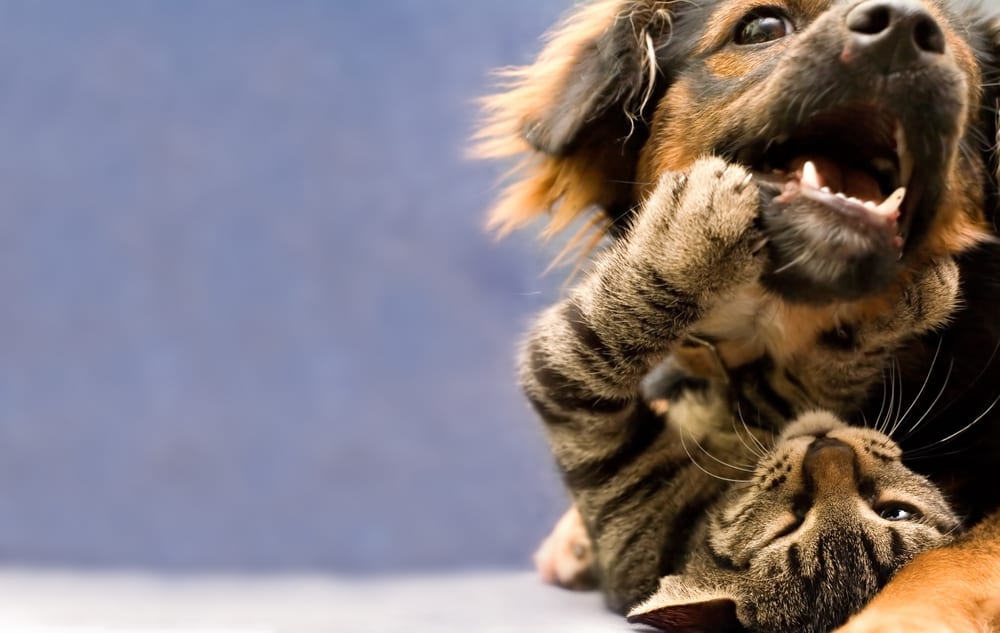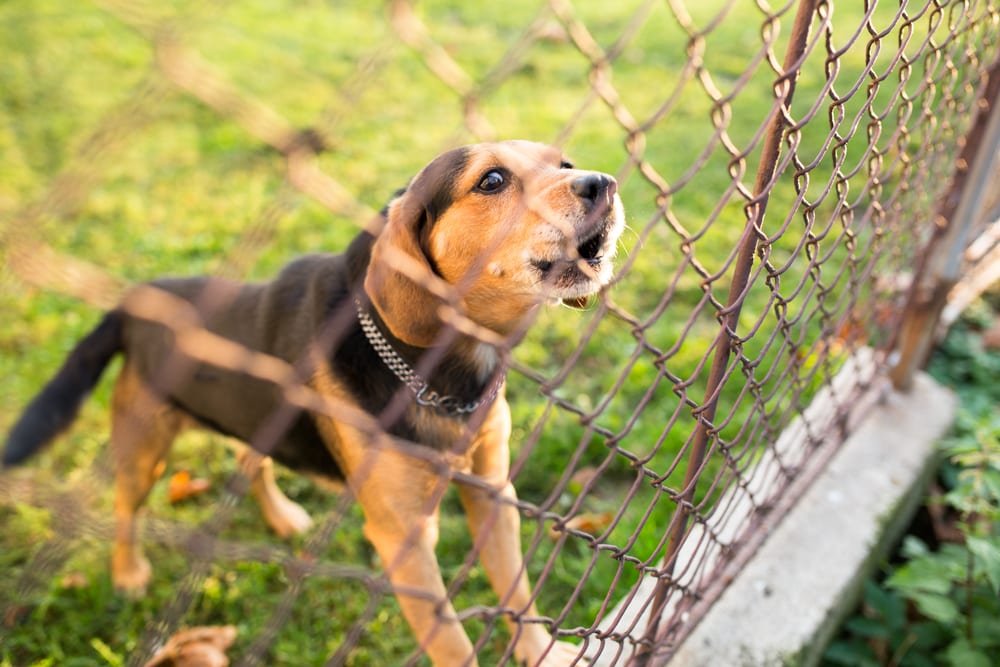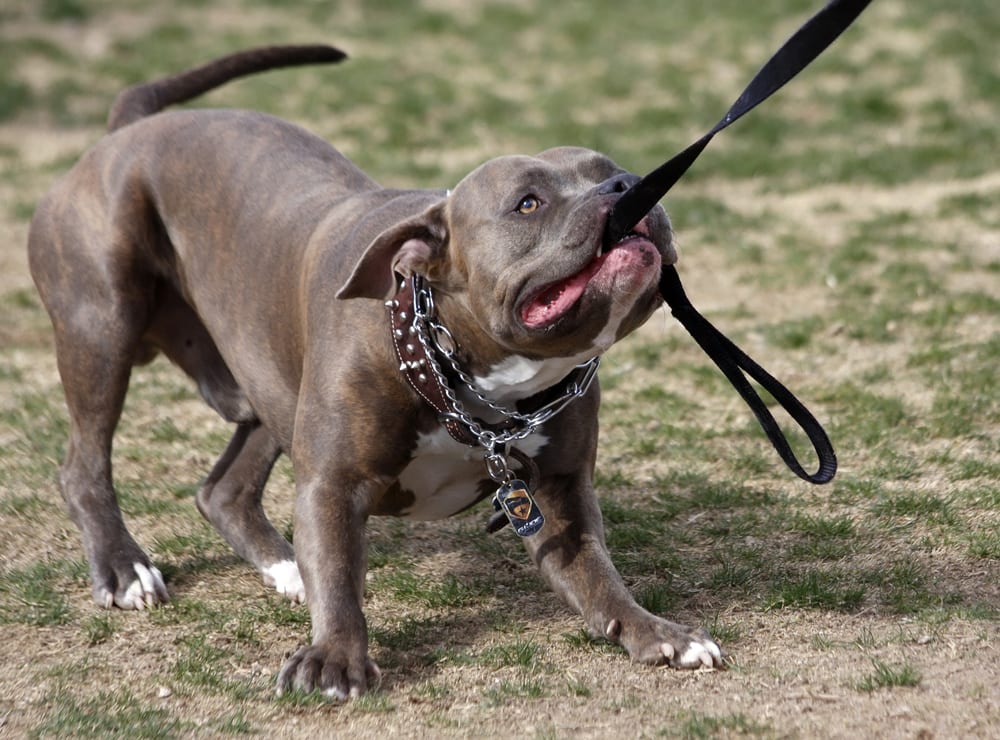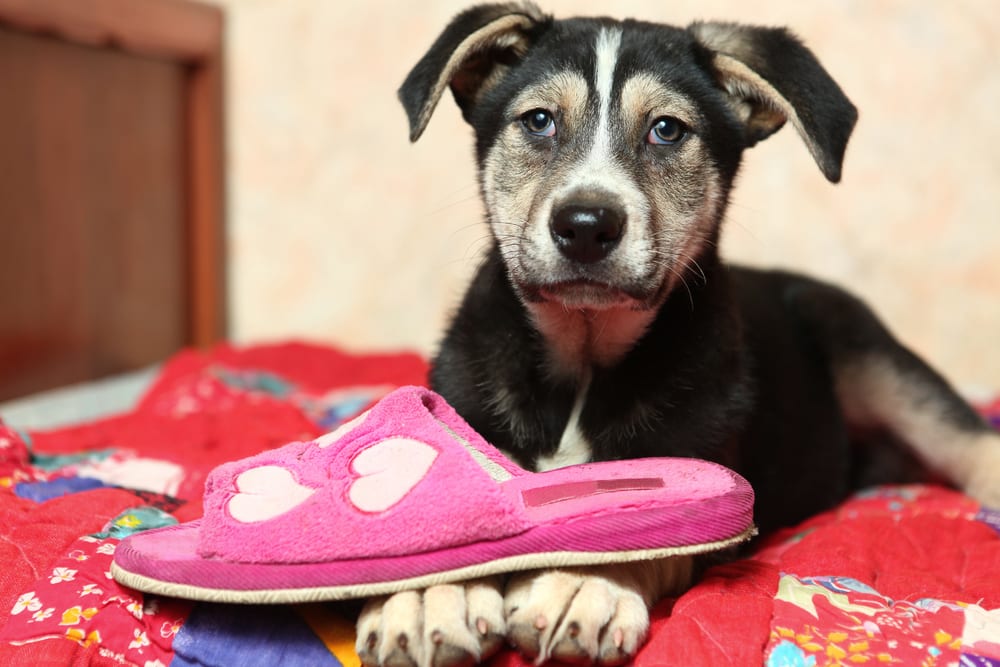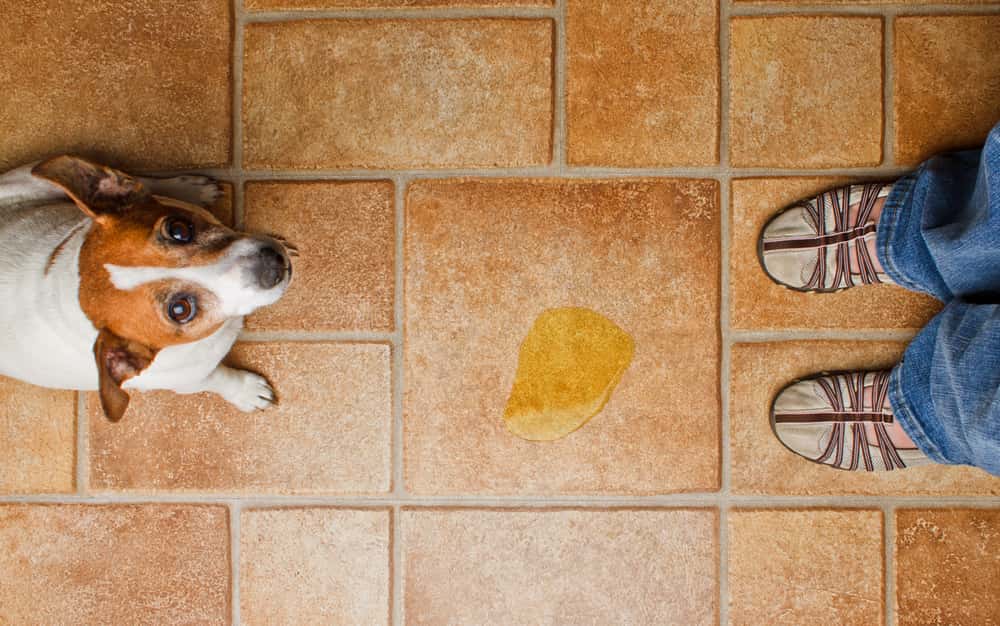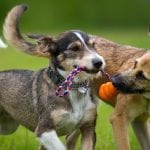You love your dog, but you don’t love their bad habits. When bad behavior becomes common, it’s easy to make the wrong move. Without realizing it, you may actually be encouraging your dog’s bad habit, or making it worse. With these tips for correcting common bad behaviors, and a careful discussion of what common reactions do more harm than good, your pet should be back to a well-behaved angel in no time flat.
1. Biting
Sometimes it’s cute and playful, but other times your pet can cause some real damage with their nipping. How can you stop this behavior before your pet accidentally hurts you or a guest?
Common reactions:
Sometimes it’s tempting to grab or yell at your pet, or try to calm them down by petting. This interaction actually rewards the behavior and communicates that biting is okay.
Do this instead:
When your pet starts biting, playfully or not, immediately take your hands away and ignore them. If they’re sitting with you on the couch or bed, gently push them onto the floor. By cutting off all interaction at the first sign of biting, however playful it may be, you communicate that biting is not okay. With consistency, they should quickly develop more appropriate play habits.
2. Barking
Rides in the car, strangers on the street, the sight of other dogs, or the doorbell ringing – lots of things might cause your dog to bark. It can be inconvenient and embarrassing for you, and scary for people that aren’t familiar with your dog.
Common reactions:
The first thing many owners do when their dog starts barking is to yell or tell them “no.” It seems like the best way to correct the behavior, but to your dog it just sounds like you’re barking right back! Another common reaction is to quickly provide the dog with what they’re barking about – attention, food, or play. This stops the barking, but also rewards the dog for their bad behavior.
Do this instead:
When your dog starts barking, the first thing to try and do is remove the stimulus. If they’re barking out the window, put them into a back room. Try teaching them an alternate reactionary behavior – for example, if they bark when the doorbell rings, train them instead to sit quietly by the mat. Reward silence instead of punishing loud barking.
3. Pulling
It’s hard to enjoy a nice walk with your dog when they’re yanking you in a different direction every few minutes. It can make it impossible to pursue other active hobbies with your dog, like hiking or running.
Common reactions:
The easiest thing is to simply let your dog walk you – go where they lead. This teaches the dog that they’re in charge, however, and may even lead to further issues as they become unsure of their position in the family “pack.” If you want to lead your dog and provide them with security, you have to establish yourself as the alpha during walks.
Do this instead:
You need to correct this behavior by teaching your dog the “heel” command. When they start to pull you ahead or to the side, say “heel!” and turn in the opposite direction. This will force your dog to follow along with you. When they catch up and maintain a loose-lease walking pace, praise your dog!
4. Chewing
You come home and the house is a mess – your dog has chewed up important papers, your favorite shoes, and even the side of an expensive chair. It’s a consistent problem for your puppy or adult dog, and you’re not sure what to do with them.
Common reactions:
When you come home to chewed up destruction, the tendency is to yell and punish your dog upon finding the evidence. But your dog won’t link the chewing to your yelling, only to your coming home. Over time, they will grow anxious awaiting your return and the inevitable yelling, and the anxiety may make chewing worse.
Do this instead:
Try to catch your dog in the act and startle them. When they drop whatever they’re destroying, put a toy in their mouth instead. When you can’t be home, puppy-proof your house. Clean up clothes and shoes, and keep your dog in a small room with toys and protected furniture. Also, be sure your dog has plenty of exercise and stimulating playthings – this will keep them from expending mental and physical energy in the act of chewing.
5. Accidents
Every puppy has to be house-trained, and sometimes older dogs struggle as well if they never learned properly. Those telltale spots around the house are a pain to clean up and can ruin nice carpeting!
Common reactions:
Again, yelling is a common first response when finding your dog has had an accident. The common old tactic of “rubbing their nose” in an accident can also seem effective. In reality, though, this only teaches your dog to fear you, and to hide their accidents – making them harder to find the next time around.
Do this instead:
First, be sure your dog has a bathroom break about every three hours (for an adult dog) to every 90 minutes (puppies). Rather than yelling when you find an accident, make sure your dog is with you at all times so you can catch them in the act. Be sure they have a bathroom break about every three hours (for an adult dog) to every 90 minutes (puppies have smaller bladders). When you can’t be with your dog, keep them in a crate or small room. They’re less likely to soil their space if they have to be near it. When they start to have an accident, startle them with a clap of your hands, then take them outside to finish their business. Praise them profusely for going outside! Positive reinforcement will eventually teach them appropriate bathroom habits.
At Pawderosa Ranch, we can help train your dog into a good citizen and break them of some bad habits during dog daycare or an overnight stay. Talk to our canine enrichment specialists for insight on how to train your dog! Contact us today to schedule your dog’s visit.
Book your dog’s stay today.
Sources:
http://www.peteducation.com/article.cfm?c=2+1551&aid=164
http://blog.adoptandshop.org/breaking-bad-habits-dogs/
http://www.thefunplace.com/house/pets/d_train3.html
http://www.pbs.org/wgbh/woof/tips/tip_08.html
http://www.humanesociety.org/animals/dogs/tips/destructive_chewing.html?referrer=https://www.google.com/
iheartdogs.com/ask-a-dog-trainer-what-are-the-7-most-common-bad-dog-habits-and-how-do-we-correct-them/


